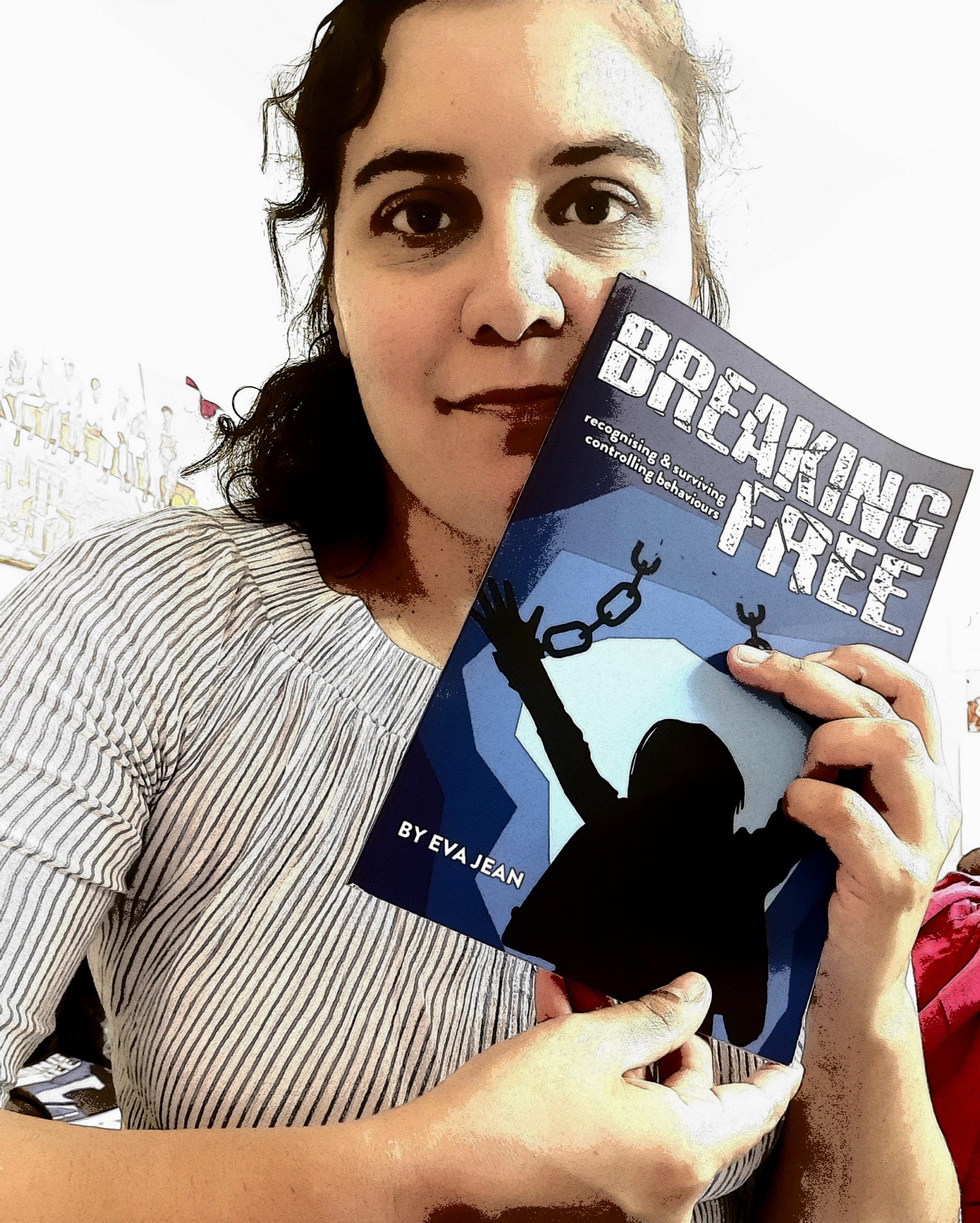When author Eva Jean wrote “Breaking Free: Recognising and Surviving Controlling Behaviours” her aim was simple; she wanted the book to save lives and to help readers recognise themselves in controlling and abusive situations. In this post, written exclusive for the DA Alliance, Eva shares her own story of abuse and how it led her to produce this catalogue of controlling behaviours to help those feeling trapped by them to escape.
“I myself am a survivor of several abusive relationships, beginning with my father and finally breaking the cycle for good nearly five years ago.
“I had been left traumatised by controlling behaviour, but because I had never been beaten or slapped, I didn’t think I was a victim of domestic violence. Also, because my controllers all looked so ‘different on the outside,’ with completely different styles and ages, I hadn’t connected up the dots with how very different people can exert control in very different ways.
“While one person may shout, another is very softly spoken and calm. One may use shaming, or sulking, whilst another may use religious convictions to get you to toe the line. One will dominate you sexually, while the other withholds affection to control you. But very rarely will the controlling person ever accept that they are controlling.
“I started noting down memories and random examples of things that had happened in my relationships (not just romantic relationships but with family members, and even a friend). As the list grew it became numerous, and more shocking, even to me, and I started linking together different ‘types’ of controlling behaviours, which made it easier for me to access further memories and group them.
“I haven’t been hit, but I have been manipulated, shouted at, domineered, blackmailed, humiliated, threatened, stalked, threatened with rape, coerced into marriage, lied to about money, body-blocked, growled at, with ongoing attempts to isolate me from work, hobbies, friends and family.
“I have been guilt-tripped about why I would need to leave the house twice a week to volunteer following severe postnatal depression and a traumatic birth. Whilst the following day I was told how wonderful and respected I was. By the same person. Talk about a head-trip.
“I have been lied to about my own baby’s weight and statistics, merely to derail me mentally. I have been lied to about my own shoe size, been told I had made a mistake about the time my baby was born (12.43am) – this is the ultimate in ‘crazy-making’ in my eyes.
“I have been stonewalled, ignored, had my feelings trivialised, and been persuaded to make adult content in order to feel ‘worthy’ of a man who had a porn addiction. And I was still told by him that I was only as good as my ‘best’ photo. Often, control and harassment have ramped up once a relationship has ended. And in several cases, I didn’t realise how abusive somebody was until years later when I began to compare notes. And I fully understand how hard it is to walk away when you think you love someone, think you can help them, and genuinely feel that the problems are your own fault.
“The examples of control I documented fall into these sections: Physical, Social, Financial, Sexual, Emotional, Self-Esteem and Children (co-parenting with an abuser).
“These sections became my book, ‘Breaking Free: Recognising & Surviving Controlling Behaviours’ which is available in both e-book and paperback on Amazon. The book also has chapters on how to safely escape, with official advice from women’s charities, as well as examples of how other survivors have stayed sane and escaped, plus advice on dealing with difficult people.
“The book was not an easy write, but it is a necessary read. Just when I think that attitudes towards women are changing enough so that we are not in as much danger just by being women, we read in the news about more violent murders, about how domestic violence is on the rise and how most women who are killed are killed in their own homes; even the accounts of Britney Spears’ terrifying conservatorship at the hands of her controlling father make for sobering reading.
“I know it is not easy to change a whole culture. But we can each do our bit. We can educate ourselves, our children and our loved ones, about the many and varied types of abuse that mostly go hidden because they don’t leave bruises, and because of the shame and blame heaped upon victims by gaslighters. I want my book to be in every person’s hands; in particular every woman’s hands. We need to all look out for each other; we need to break the silence around domestic abuse. More than ever, we need agencies to recognise that there are many hundreds of types of abuse, not just physical violence.
“We also need to sometimes remind ourselves and our children what a loving, healthy relationship looks like. Because many of us never experience that joy. We need to make healthy love the norm, and expose abuse always, and quickly, so that survivors can walk away faster and easier, and with more help.”






